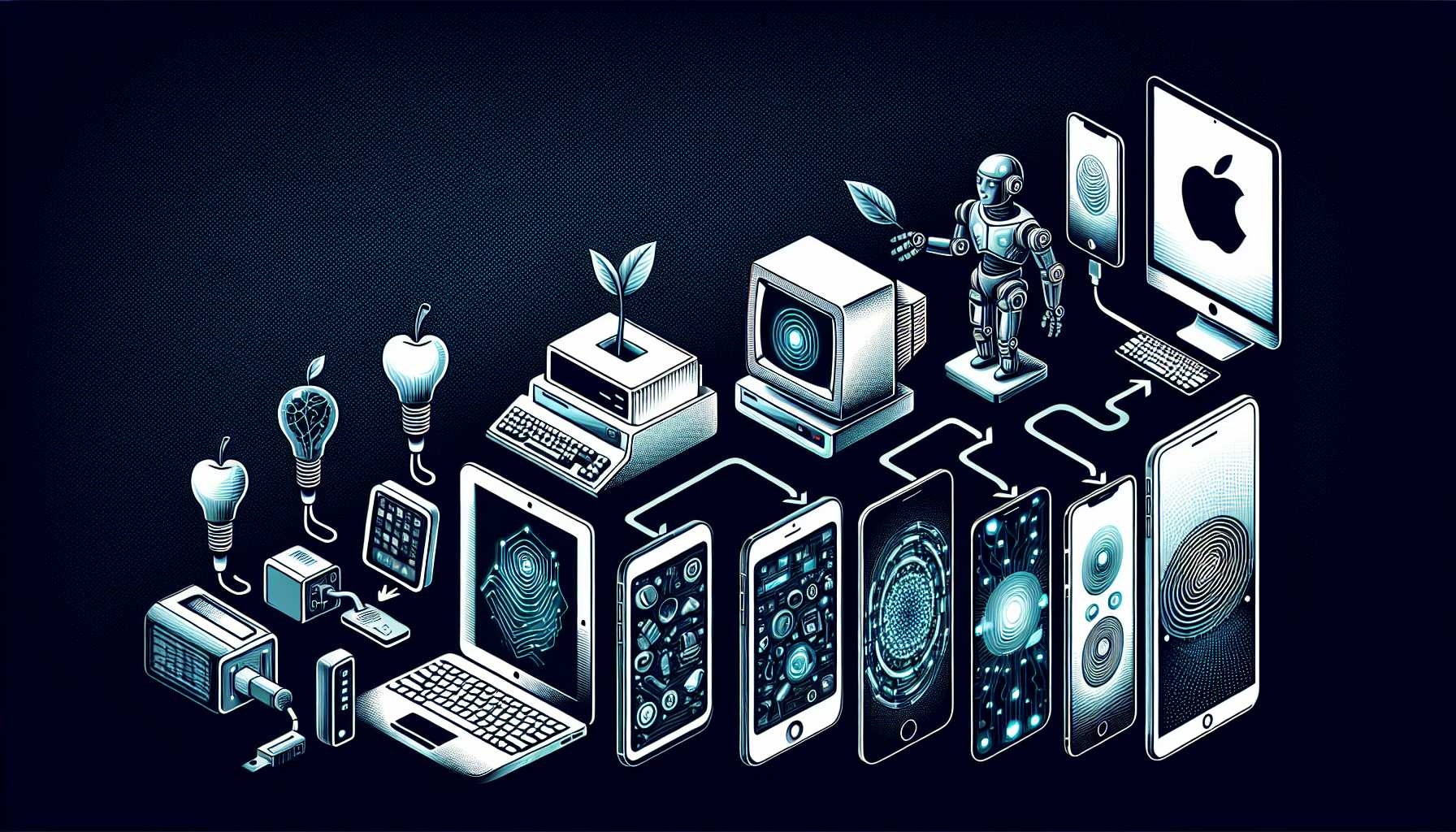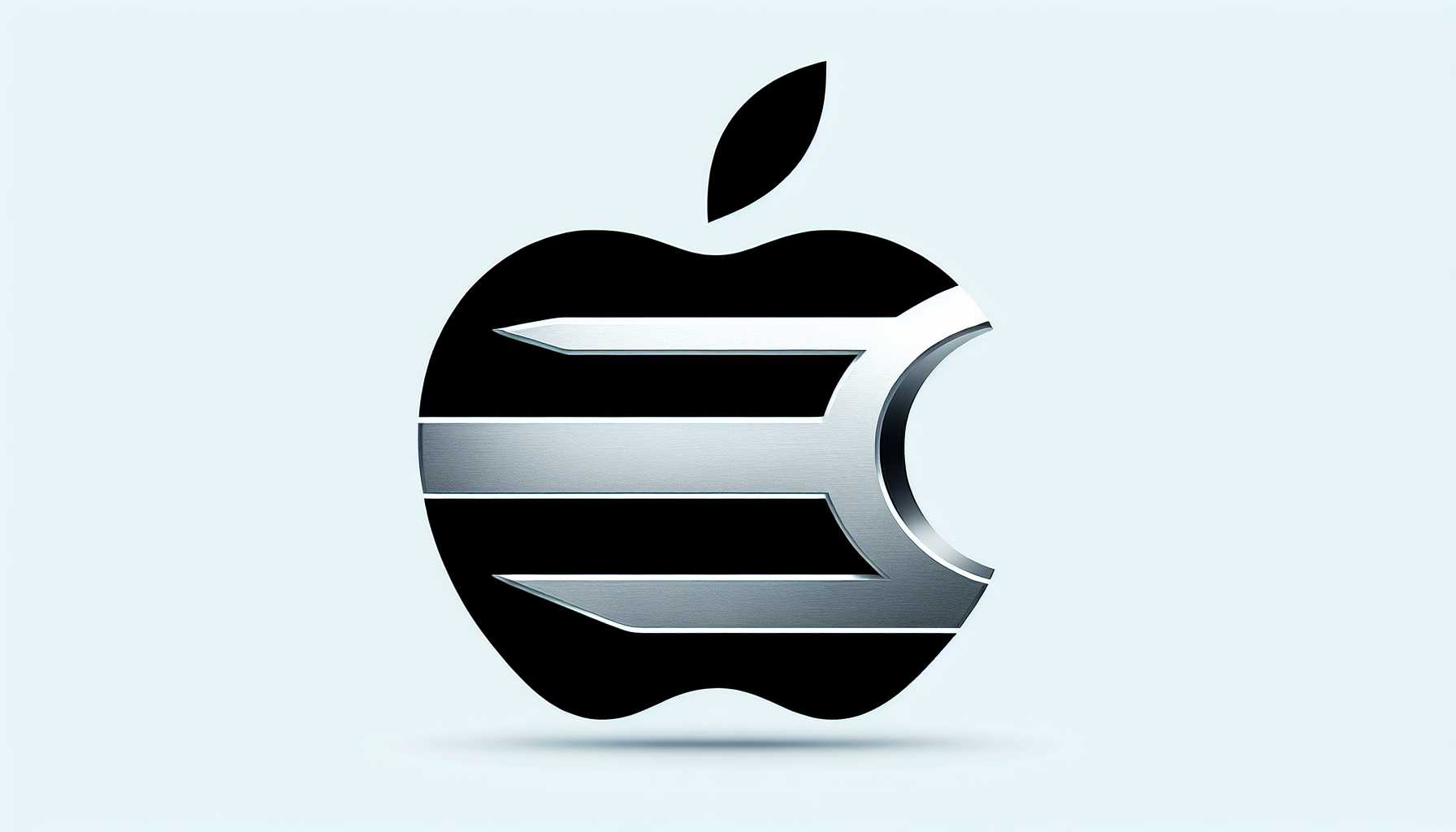Apple’s AI Evolution: A Tortoise’s Steady Pace
In the fast-paced game of artificial intelligence where tech behemoths race to outshine each other, Apple has often been seen as the tortoise amongst hares. Yet, just like our shelled friend in Aesop’s fable, Apple’s slow and steady approach may win the race.
Having bided its time through the AI storm stirred by ChatGPT’s 2022 debut, Apple is rumored to unveil its prowess in AI, potentially through an enhanced Siri, at its annual WWDC event this June. Reports suggest Apple’s engagement with AI titans like OpenAI and Google, hints at an AI-enhanced horizon for its users via “Ajax,” Apple’s rumored AI model.
Delving into Apple’s recently published papers hints at smaller, more efficient AI models packing a punch with rapid decisions, effectiveness, and omnipresent availability. The promise of iOS 18 running an on-device fully offline AI model points towards an epoch of privacy-focused, ready-to-assist AI in the realms of the Apple ecosystem.
Imagine Siri – not just better – but exceptional; an assistant that understands context, anticipates needs, and communicates with discernment. What’s more enthralling is the practical applications of AI that Apple appears to be exploring.
From creative processes like image editing using intuitive commands to health metrics analysis through AI-processed biometric data, the horizons are broadening. Apple envisions a future where AI is not just a showcase of technological prowess but integrated into the very fabric of daily life.
The more significant undercurrent is perhaps Apple’s foray into multi-modal AI applications like “Ferret”. This could signal a paradigm shift in how we interact with our devices – think seamless navigation and comprehension across different applications and features.
In a nutshell, despite being accused of arriving late to the AI soirée, Apple is poised to demonstrate that strategic patience coupled with innovative applications can be a worthwhile gambit.
Beat Saber’s Adieu to Quest 1: An Era’s End
Beat Saber’s denouncement of its compatibility with the pioneering Quest 1 headset is a somber reminder of the ever-evolving nature of technology. As Meta’s Quest 1 is ushered towards obsolescence without further multiplayer support or customer service post-November 2024, it’s a telling example of how tomorrow’s innovations make today’s marvels memories.
Quest 1 loyalists have the consolation of the game’s PC version through Meta Quest Link, however, the crux resides in the perpetual motion in the tech industry – a realm where upheaval is the only constant.
Whether it’s strategic refocusing or a natural progression of tech’s lifecycle, Beat Saber’s developers point to a future where they’re “raising the bar” in terms of possibilities.
Jack Dorsey’s Bluesky Departure: Winds of Change
The tech world was recently taken aback by Jack Dorsey’s departure from Bluesky’s board – the decentralized social media platform he helped seed. Though the specifics of his exit remain shrouded, Bluesky’s ambition to establish a social network prioritizing user control continues to spark curiosity.
Dorsey’s stint at Bluesky was akin to a cameo – impactful yet momentary. His departure could signify a multitude of possibilities for Bluesky, perhaps opening avenues for new ideologies to propel its future.
GitHub Goes Mobile with Copilot Chat: Coding in Your Pocket
GitHub’s recent unveiling of Copilot Chat for its mobile app exemplifies how tech companies are adapting to the modern dev’s lifestyle. With use cases ranging from reviewing code in transit to quickly resolving coding debates over coffee, Copilot Chat on mobile is an endorsment of productivity without chaining developers to their desks.
The concept transcends conventional practices and heralds a plugin where mobile interfaces are not just about quick tasks but potentially nurturing entire programs in natural language. In an industry where immediacy and efficiency are king, GitHub’s bet may just be the fortification mobile coding needs.
Rivian and Apple: A Possible Alliance?
Caught amidst waves of speculation, Apple’s rumored talks with electric vehicle manufacturer Rivian have stirred the pot of curiosity. Though both parties remain tight-lipped, the intrigue lies within what such collaboration could harbor.
Is Apple crafting an EV chapter post its “Project Titan” or merely exploring synergies in a nascent market? Diverse predictions about this potential convergence of mobility and tech reflect the unpredictable but compelling nature of technological alliances.
What remains certain is the heightened expectations from Apple’s upcoming “Let Loose” event and Rivian’s financial disclosures.
The Met Gala Goes AI: When Fashion and Tech Collide
The recent Met Gala brought AI-generated celebrity looks to the fore, blurring lines between reality and virtuality. From Katy Perry to Rihanna, cyberspace was rife with fictitious red-carpet avatars, showcasing AI’s prowess in clothing simulation and subsequent viral social media misadventures.
AI’s role in this juggernaut event underscores how tech has permeated the realm of fashion, influencing both the spectacle and perception. The Met Gala’s AI incursion may well be symbolic of a future where digital fashion shows, rendered in stunning realism, become as commonplace as their physical counterparts.
On the Horizon: OpenAI’s Ethical AI Data Journey
OpenAI is crafting ‘Media Manager’ – a beacon for creator consent in AI’s data-extraction landscape. Promising creators control over their intellectual property’s AI usage, this innovative tool might well redefine the norms of ethical AI development.
While the initiative is an impressive stride towards respecting creative rights, its arrival in 2025 raises questions on how impactful it can be for content already ensnared in AI’s training webs. Nonetheless, OpenAI’s endeavor is a commendable step towards reconciling with creators in the wake of pervasive data scraping contentions.







